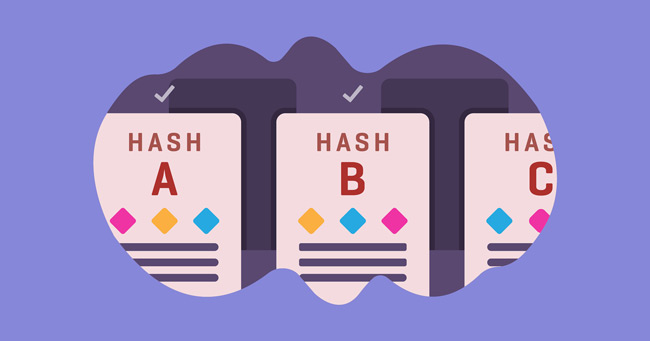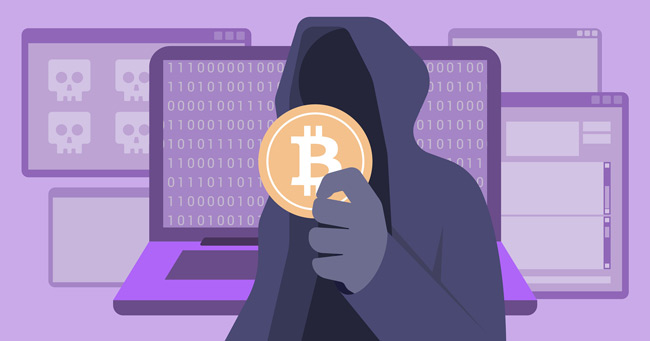Will Blockchain Technology Revolutionise the Way You Bet?

Around 12 months ago, the word ‘cryptocurrency’ was catapulted into the consciousness of everyday folk. Even technophobes were asking what Bitcoin was and whether you can get rich with it thanks to the incredible media coverage it generated.
Regardless of what your opinion is of cryptocurrency, many will agree that the most interesting part of the technology is quietly sat in the background — but is essential to everything.
Blockchain technology is what makes cryptocurrency possible. However, cryptocurrency isn’t the only thing that’s made possible by the blockchain.
Startups around the world are busy creating businesses in a range of industries, aimed at disrupting the status quo. One such industry where this innovation is taking place, is the gambling industry.
Over the next 6 minutes, you’ll discover the pros and the cons of gambling on the blockchain.
It may help you form your opinion over whether this really is the future of gambling, or if it’s a false dawn.
Pros

Blockchain technology can make betting more transparent
One of the biggest selling points of blockchain technology is that data is decentralised, and not held on a central server. There is no single point of authority that controls the transactions that take place.
Actions that take place are instead coordinated and verified by a network of independent nodes according to the smart contracts created on the blockchain with each transaction. These can not then be manipulated.
So in the context of gambling, it means that gambling companies can prove to players that there was no interference with the result of a roulette spin, for example.
Many blockchain gambling companies are using what is known as a pseudorandom number generator (PRNG) to calculate the results of a spin. This is a completely random and fair way of generating a result.
You place your bet, and the smart contract follows a simple ‘if/then’ statement to execute the result based on the rules set up in the contract. You win your bet and you receive the money straight away.
Further to this, and the decentralised, open-source nature of blockchain technology, the transactions and code can be viewed by anyone. Any player can check the game to see if a bet was conducted in a fair way.
Lower running costs mean that players get truer odds
Because blockchain technology creates an industry managed by technology, it has the power to dramatically lower bookmaker overheads.
As you probably know, a bookmaker guarantees their profit by building a big margin into their book. This margin of guaranteed profit is usually around 7% but can be as high as 25%.
Thanks to lower overheads, blockchain gambling companies can become more competitive with their pricing and offer odds that offer a truer reflection of the probabilities of an event occuring.
You may think that they’re not just going to lower their margins out of the goodness of their own hearts. But the ultra-competitive nature of the gambling industry should ensure these savings are passed onto customer.
It’s something that’s already happening in the early blockchain betting platforms and decentralised betting apps.
Their margins in some cases are less than 1%!
That means over the long run, you should lose a much lower percentage of your money to the bookmaker.
More freedom for game developers
The idea behind many blockchain gambling projects is that their technology provides the platform from which gamblers can place bets.
Third parties will provide bank roll, so anyone can act as a ‘bookmaker’. Kind of similar to P2P betting, except technology is the regulator, rather than a central authority such as Betfair.
So for a games developer, it gives them lots of options. No longer do they have to hope that a game is chosen by a betting company to be on their platform.
They can simply offer the game direct to players and the third party bankroll backers will provide the necessary funds. The blockchain protocol will manage the entire process and give a lot more freedom to all parties.
So why could this improve games?
No longer will game developers be restricted to creating titles that fit within the restrictive guidelines set out by mainstream gambling companies.
They will be free to become as creative as they like. It will be a case of players dictating the types of games that are made, and that’s a pretty exciting prospect. Especially when you factor in the previously mentioned possibilities.
Because of the true proof of ownership capabilities offered by blockchain tech, it also creates new mechanics that can be incorporated into games too.
Perhaps after x amount of playing hours you can earn a special power up that increases your odds. True ownership means that you own that powerup forever and can use with any game in the ecosystem.
Cons

Privacy isn’t necessarily a good thing
One of the most discussed benefits of the blockchain is that it offers a large degree of privacy to individuals.
It’s understandable that this utopian vision is welcomed in some corners of the world where people are seeing their everyday freedoms eroded.
And in China, where gambling is one of the most popular forms of entertainment, but is also illegal… It’s clear to see why the anonymous nature of some of the blockchain betting solutions is extremely attractive.
But regulation is extremely important. It stops underage gamblers, and problem gamblers. It could be argued that the gambling industry actually doesn’t do enough to minimise the risks as it is. So what happens when people can bet with complete freedom and anonymity?
Suddenly, blockchain technology wouldn’t be evolving the industry, it’s devolving it.
This is one of the biggest challenges that blockchain gambling must overcome if it’s to be a success.
Luckily, regulators such as the Maltese Gaming Authority are searching for solutions. They’re exploring how regulation and blockchain technology can co-exist. And not only co-exist, but take the industry to a new and improved level.
When you look at it logically, blockchain technology actually has the ability to tighten regulation. If all betting companies use the same regulatory blockchain, and a problem gambler self excludes from one betting platform, he will be excluded from all.
Current product offerings are complicated
Typically, it’s only a small percentage of gamblers, the hardcore type, that will sacrifice entertainment for getting better odds.
Matched bettors and others that seek to make profit above all else will care less about the user experience. But for the majority of gamblers? All they’re interested in, is whether a platform is easy to use and entertaining.
So let’s consider the current user experience in the blockchain gambling industry.
Firstly, the platforms have nowhere near the budgets of the established and mainstream operators. So they are unable to promote their offering to players, or provide the same levels of support and customer service.
Secondly, the fact they don’t have large marketing teams and millions to spend on branding and messaging means that they usually sell their offering in an extremely poor way to players. It’s often full of jargon and technical language that gives anyone but a hardcore techy a headache.
That’s before they have to buy cryptocurrency, and exchange it for tokens.
Your average Joe would likely have jumped off the rise long before that.
The products on offer just aren’t very good
Lastly, players might be willing to overcome the aforementioned hurdles if what was on offer at the other end of the obstacle course, was a betting product far superior to what’s available in the mainstream market.
However, they’re not. Far from it.
Currently, many of the blockchain gambling platforms resemble products that were on offer in casinos at the turn of the century when people were still using dial up. Seriously, take a look for yourself. It’s not pretty.
We’re talking dice games, heads or tails, and a bunch of other very basic games.
Now, it is worth remembering, that is only what is currently on offer. The market is still only a year old, and a lot of these games are testing the waters. They’re testing the technology at a basic level before more innovative products are created.
But currently, the product is only attractive to the most hardcore, or most oppressed of players.
Conclusion
Admittedly, the blockchain gambling industry is in its startup phase. The projects are all still very young and the industry is a bit like the wild west.
You have some gambling companies that are genuinely seeking to create products that improve the gambling experience.
However, alongside the genuine projects are the sharks that participate in the industry solely to try and earn a quick buck.
At the moment, it’s difficult to differentiate between the two.
On a theoretical level, the possibilities that blockchain technology brings to the gambling world is incredible.
However, we’re yet to see any credible projects that truly bring these ideas to life. None offer a product that can in anyway compete with the big boys, let alone improve on them.
A few are in development, and promise to do so. But they’re not there yet.
About the Author
This post was written by Luke Jordan. Luke founded Beating Betting at the start of 2016 and ran the site until February 2020. He is passionate about entrepreneurship, marketing and video creation.
